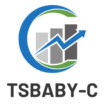In a world where spreadsheets can feel like a never-ending maze, integrated accounting software swoops in like a superhero, cape and all. It combines the power of various financial functions into one sleek platform, making accounting as easy as pie—well, maybe easier. Gone are the days of juggling multiple programs and praying to the accounting gods for a miracle.
Integrated Accounting Software
Integrated accounting software consolidates various financial functions into a unified platform. Businesses rely on this technology to manage bookkeeping, invoicing, and financial reporting efficiently. By centralizing these tasks, it enhances productivity and minimizes errors.
Financial data flows seamlessly across departments using this software. Users can access real-time information, leading to informed decision-making. Cloud-based options allow teams to collaborate from anywhere, ensuring that all members stay updated.
Integration with other business applications further improves functionality. Payroll systems, CRM tools, and inventory management all connect effortlessly, creating a cohesive operational framework. This synergy reduces data duplication and enhances accuracy.
The advantages extend to cost savings as well. Companies often reduce overhead by minimizing the number of software subscriptions required. Such solutions are tailored to meet the needs of various industries and organization sizes, making them versatile.
Regulatory compliance becomes simpler through built-in features that automatically update to maintain adherence to financial regulations. Additionally, robust security measures protect sensitive information, giving users peace of mind.
Selecting the right integrated accounting software involves assessing specific business needs. Evaluating scalability, functionality, and user experience enables organizations to find the best fit. Integration capabilities should also factor into the decision-making process, ensuring a seamless transition.
Key Features of Integrated Accounting Software

Integrated accounting software encompasses several key features that enhance financial management and overall efficiency.
Financial Management
Robust financial management tools streamline bookkeeping, invoicing, and reporting processes. Real-time data access enables accurate tracking of income and expenses, supporting informed decision-making. Automation of routine tasks reduces the risk of human error, while easily customizable reports provide insights tailored to specific business needs. Integration with banking systems facilitates automatic reconciliation, saving time and increasing accuracy. Moreover, user-friendly dashboards visually represent financial performance, making it easier for users to identify trends.
Inventory Management
Comprehensive inventory management features allow businesses to monitor stock levels in real-time. Accurate tracking minimizes the likelihood of stockouts or overstock situations, directly impacting customer satisfaction. Automatic alerts notify users when inventory reaches predefined thresholds, triggering timely reorder processes. Integration with sales data provides insights into popular products and seasonal trends, enabling better purchasing decisions. Additionally, streamlined inventory accounting ensures precise valuation of assets on financial statements.
Customer Relationship Management
Integrated customer relationship management tools help manage client interactions and streamline communication. Automation of marketing campaigns enhances engagement, driving customer loyalty. Accessible customer data aids in tracking preferences and purchase history, facilitating personalized service. Quick access to invoicing and payment histories simplifies billing inquiries, ensuring smooth customer experiences. Analytics tools allow businesses to gain insights into customer behavior, helping tailor strategies for improved retention and satisfaction.
Benefits of Using Integrated Accounting Software
Integrated accounting software offers numerous advantages for businesses aiming to improve financial management and operational efficiency.
Streamlined Processes
Streamlined processes enhance overall productivity. Users benefit from managing bookkeeping, invoicing, and financial reporting within a single platform. Coordination among departments improves as information flows seamlessly, eliminating the confusion of handling multiple applications. Automation of routine tasks reduces the time staff spends on manual input. Additionally, real-time updates ensure that everyone accesses current data, minimizing delays in decision-making.
Improved Accuracy
Improved accuracy results from reducing human errors associated with manual entry. Integrated systems eliminate data duplication across platforms, ensuring consistency and reliability in financial records. Users can trust the information generated through integrated software, leading to more informed decisions. Automated calculations further decrease the chances of mistakes in reports and financial statements. Finally, regular updates to the software ensure compliance with the latest financial regulations, enhancing data accuracy.
Enhanced Reporting Capabilities
Enhanced reporting capabilities empower businesses to gain deeper insights into their financial performance. Customizable reports allow users to tailor information according to specific metrics relevant to their needs. Real-time data availability grants firms the agility to respond promptly to changing market conditions. Users can generate detailed analytics to track income and expenses over various periods. These capabilities facilitate strategic planning and operational adjustments, driving overall business growth.
Popular Integrated Accounting Software Solutions
Several integrated accounting software solutions cater to diverse business needs. Each option offers unique features that enhance financial management.
QuickBooks
QuickBooks stands as a prominent choice for many businesses. It provides comprehensive features for invoicing, expense tracking, and financial reporting. Users appreciate its user-friendly interface, which simplifies daily accounting tasks. Mobile access allows for management on the go, an essential feature for busy professionals. Customizable reports deliver valuable insights into financial health, while integration with various applications enhances functionality. Furthermore, QuickBooks offers scalability, accommodating businesses as they grow.
Xero
Xero offers a cloud-based solution designed for collaboration. Real-time data access ensures team members can work together seamlessly, regardless of location. This software streamlines invoicing, bank reconciliation, and payroll processing, making financial tasks straightforward. Users benefit from its intuitive dashboard, which displays essential financial metrics at a glance. Xero’s integration with over 800 third-party applications expands its capabilities. Customizable features allow businesses to tailor the software to specific requirements, enhancing its overall utility.
FreshBooks
FreshBooks targets small businesses and freelancers with its easy-to-use platform. Invoicing is simple and efficient, ensuring users can maintain cash flow. Time tracking features allow professionals to bill accurately for the hours worked, leading to improved project management. With automated reminders, clients receive timely notifications regarding outstanding invoices. Collaboration is encouraged through expense management tools and project tracking, promoting teamwork and accountability. FreshBooks’ integration with payment gateways streamlines transactions, enhancing overall efficiency.
Conclusion
Integrated accounting software represents a significant advancement in financial management. By consolidating various accounting functions into one platform it not only simplifies processes but also enhances accuracy and efficiency. Businesses can benefit from real-time data access which supports informed decision-making and strategic planning.
The ability to integrate with other essential business applications further streamlines operations while reducing the risk of errors. As organizations seek to optimize their financial management practices choosing the right integrated accounting software becomes crucial. With options like QuickBooks Xero and FreshBooks available businesses can find solutions tailored to their specific needs and industry requirements. Embracing this technology can lead to improved productivity cost savings and a stronger foundation for future growth.



